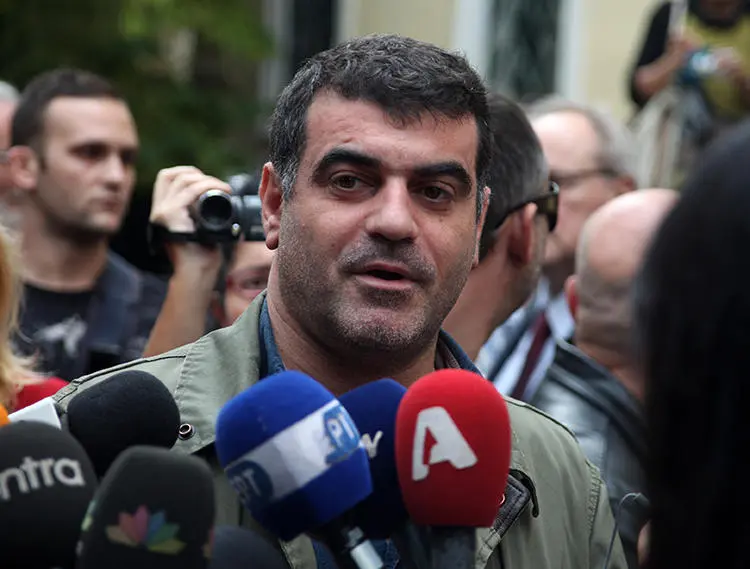Berlin, January 31, 2020 — Greek authorities should overturn the conviction of journalist Kostas Vaxevanis on appeal and reform the country’s outdated criminal defamation laws, the Committee to Protect Journalists said today.
On January 21, a court in Athens found Vaxevanis, editor of the local newspaper Documento, guilty of criminal insult for tweeting an image mocking former Prime Minister Antonis Samaras, according to a report by his employer. The court sentenced him to a suspended sentence of five months’ imprisonment; if he is found to commit a similar offense over the next three years, that sentence will be enforced, according to the Documento report.
Vaxevanis told CPJ via email that he filed an appeal in the case, but said a date has not been set for a hearing.
In 2017, he was detained by police after the wife of the country’s former central bank governor, a Samaras appointee, sued him for libel over his 2012 reporting, according to reports.
Vaxevanis was acquitted of those charges on February 26, 2018, according to reports, and was arrested immediately afterwards in response to Samaras’ complaint, which was filed on February 25, according to a copy of the indictment against Vaxevanis, which CPJ reviewed. Vaxevanis told CPJ that he believed the suit is retaliation for his coverage of the former politician and those around him.
“Politicians should expect and endure criticism, and should not pursue criminal charges against journalists,” said CPJ Europe and Central Asia Program Coordinator Gulnoza Said in New York. “Authorities should overturn journalist Kostas Vaxevanis’s conviction on appeal. Greece’s criminal defamation laws are out of place in a liberal democracy and should be scrapped.”
The image that Vaxevanis tweeted on February 25, 2018, which is still public on his account, is a meme depicting Samaras threatening that “anyone who opens their little mouth will share the same fate as Mavrikos.” Panagiotis Mavrikos, a newspaper publisher, died in 2016 in a car accident, according to reports. In the indictment, Samaras called the image “extremely slanderous, defamatory and offensive.”
CPJ emailed Samaras’s lawyer for comment, but did not receive any reply.
According to the report by Documento, the court rejected the defense’s argument that the meme was not defamatory because it was satire.
Vaxevanis’s account has more than 400,000 followers, and he frequently posts political commentary and links to his journalism.
Previously, while editor of Hot Doc magazine in 2012, Vaxevanis published leaked information alleging that members of Samaras’ party were hiding money in Switzerland, for which he was briefly arrested on misdemeanor breach of privacy charges, according to news reports from the time. He was later acquitted, according to reports.
[Editors’ Note: This article has been corrected in its second paragraph to reflect that Vaxevanis was convicted on insult charges.]
